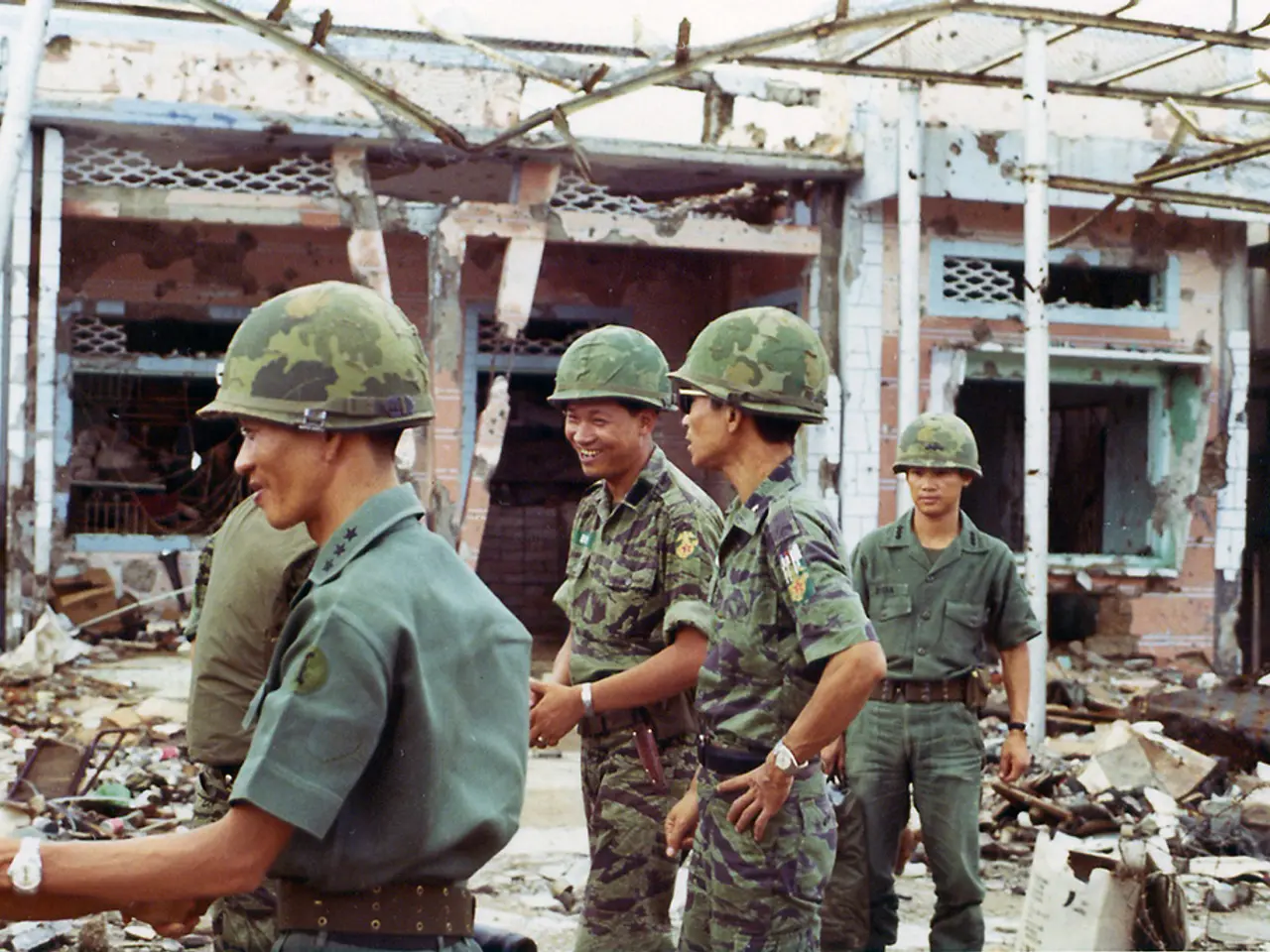98 Blast Survivors Assert That Life is Fundamentally Different Despite Being Overlooked
Twenty-seven years after the devastating 1998 US embassy bombing in Nairobi, survivors and families of victims gathered at the August 7 Memorial Park to remember the tragic event. The bombing, which remains one of the worst terror attacks in Kenya's history, claimed 224 lives and injured over 5,000, mostly Kenyans.
The event was filled with prayer, memories, and a call for compensation that has gone unanswered for nearly three decades. Survivors like Michael Macharia, who was raised by relatives since the bombing, stated that he has struggled and had more bad days than good ones. The psychological toll has been heavy for many survivors, with some still living with fear and trauma.
Rose Kwamboka, who was four months pregnant at the time, was injured inside a lift at the bank and experienced physical injuries as well as psychological trauma. Another survivor, Simon Ayienda, was injured and lost his job, could not educate his children, and has lived in poverty as a result of his injuries.
In recent years, some progress has been made in US courts regarding the compensation for the victims. In May 2020, the US Supreme Court ruled that victims are entitled to punitive damages from Sudan, amounting to $4.3 billion within a total $10.2 billion damages award against Sudan for supporting al Qaeda operatives. The $335 million settlement from Sudan was received by the US government in 2021 to provide compensation to victims and their families of the embassy bombings and related terrorist attacks.
The US Secretary of State announced in March 2021 that the funds would be distributed, with priority given to US citizens at the time of the bombings, and additional funds have been allocated to ensure equitable compensation between birthright and naturalized US citizens. Legislation accompanying the settlement included additional funds ($150 million) to address compensation disparities between different categories of US citizens and foreign nationals affected.
However, many survivors feel that they have been forgotten and are still suffering to this day. Ali Mwadama, the chairperson of the victims association, expressed frustration at how survivors have been neglected. Last year, a Senate Ad-Hoc Committee tabled a report calling for support to the victims and urging the Kenyan government to lobby the US to expand compensation.
At the memorial, survivors gathered around the names engraved on the wall and laid flowers. Mwadama said, "We will not stop asking. Even if we die, our children will continue the fight." Michael Nyakanga, one of the survivors, was caught in the blast and suffered eye injuries. He has struggled since then despite initial help from the US and Kenyan governments.
A free ride service was offered by the Memorial Park, Matatu Owners Association, and the Galana Energies as part of the commemoration. The attack remains a painful reminder of the violence that has plagued Kenya, and the struggle for justice and compensation continues. As Mwadama stated, "We will not stop asking."
References:
[1] The Sudan Claims Resolution Act of 2020. (n.d.). Retrieved from https://www.congress.gov/bill/116th-congress/senate-bill/4681
[2] US embassy bombing survivors demand more compensation. (2021, August 7). Retrieved from https://www.bbc.com/news/world-africa-58292534
[3] US embassy bombing survivors demand more compensation. (2021, August 7). Retrieved from https://www.reuters.com/world/africa/us-embassy-bombing-survivors-demand-more-compensation-2021-08-07/
[4] US embassy bombing survivors demand more compensation. (2021, August 7). Retrieved from https://www.aljazeera.com/news/2021/8/7/us-embassy-bombing-survivors-demand-more-compensation-in-kenya
- The event at the August 7 Memorial Park brought attention to the mental-health struggles of survivors like Michael Macharia, who has had more bad days than good ones due to the psychological toll of the bombing.
- Rose Kwamboka, who was four months pregnant at the time of the bombing, is among survivors dealing with both physical and psychological aftermath.
- Simon Ayienda, another survivor, lost his job, could not educate his children, and has lived in poverty as a result of his injuries.
- Despite recent progress in US courts regarding compensation, many survivors feel neglected and are still suffering.
- In recent years, science and health-and-wellness have been key factors in understanding and addressing the long-term effects of war-and-conflicts and car-accidents on individuals' physical and mental health.
- The struggle for justice and compensation in the wake of the 1998 US embassy bombing also highlights the intersection of politics, crime-and-justice, and general-news, as survivors push for accountability and equitable distribution of funds.




